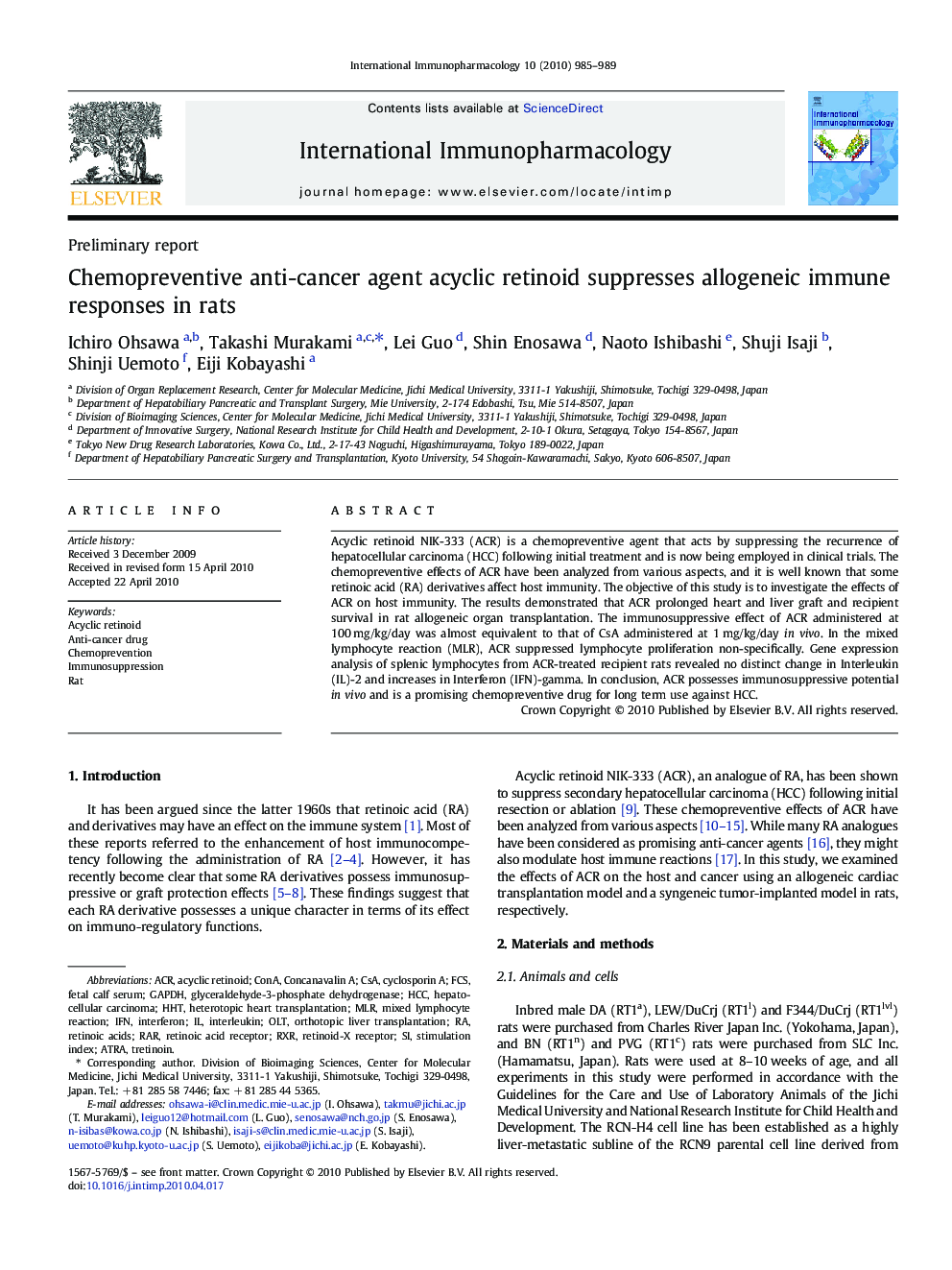| Article ID | Journal | Published Year | Pages | File Type |
|---|---|---|---|---|
| 2541139 | International Immunopharmacology | 2010 | 5 Pages |
Acyclic retinoid NIK-333 (ACR) is a chemopreventive agent that acts by suppressing the recurrence of hepatocellular carcinoma (HCC) following initial treatment and is now being employed in clinical trials. The chemopreventive effects of ACR have been analyzed from various aspects, and it is well known that some retinoic acid (RA) derivatives affect host immunity. The objective of this study is to investigate the effects of ACR on host immunity. The results demonstrated that ACR prolonged heart and liver graft and recipient survival in rat allogeneic organ transplantation. The immunosuppressive effect of ACR administered at 100 mg/kg/day was almost equivalent to that of CsA administered at 1 mg/kg/day in vivo. In the mixed lymphocyte reaction (MLR), ACR suppressed lymphocyte proliferation non-specifically. Gene expression analysis of splenic lymphocytes from ACR-treated recipient rats revealed no distinct change in Interleukin (IL)-2 and increases in Interferon (IFN)-gamma. In conclusion, ACR possesses immunosuppressive potential in vivo and is a promising chemopreventive drug for long term use against HCC.
